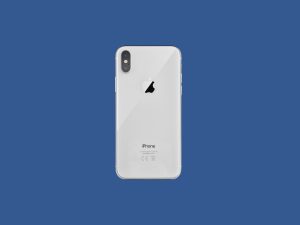After a week of rumors, Google confirmed Friday it had agreed to purchase the fitness tracker company Fitbit for $2.1 billion, significantly expanding the ad giant’s hardware business. Even with Fitbit, Google will have a hard time competing in the Apple Watch–dominated wearables market. But if Google wants to realize its plainly stated ambition of putting its services everywhere, all the time, it needs a spot on your wrist. The mountains of data produced by Fitbit’s 28 million users doesn’t hurt either.
“By working closely with Fitbit’s team of experts, and bringing together the best AI, software and hardware, we can help spur innovation in wearables and build products to benefit even more people around the world,” Rick Osterloh, Google’s senior vice president for devices and services, said in a statement announcing the acquisition.
Google’s smartwatch presence is currently limited to WearOS, the operating system that powers an assortment of second-tier players. That includes Fossil, from whom Google acquired unspecified smartwatch technology for $40 million earlier this year. This is somewhat of a pattern for Google: In 2018 it spent $1.1 billion to buy a significant chunk of HTC’s smartphone team, which helped develop Google’s own Pixel smartphones. Investing in a preexisting company helps it play catchup that much faster than figuring it all out in-house.
Releasing an Apple Watch competitor would nicely compliment what Osterloh has said is Google’s vision for “ambient computing.” The idea is that Google’s products should always be available to help, say, if you need to make a quick web search. The rest of the time, “the technology just fades into the background when you don’t need it. So the devices aren’t the center of the system, you are,” Osterloh said at a Google hardware event earlier this month. If Google envisions a future world in which people are constantly surrounded by its services, it helps for it to have a computer they can attach to their wrist.
That future is far from certain, however. Google has plenty of both hardware and software challenges ahead as it pushes further into wearable devices. Google first announced its Android Wear watches before Tim Cook unveiled the first Apple Watch in 2014, but the company has since fallen behind. For one, WearOS leaves plenty to be desired, especially compared to Apple’s watchOS. Unlike the iPhone maker, which manufacturers its own chips, Google still needs to rely on somewhat lackluster offerings from Qualcomm. And Apple already controls almost 38 percent of the wearable devices market in North America, according to data from the research firm Canalys.
Aside from wearables, the extensive fitness data Fitbit has amassed could help Google compete in the healthcare market. DeepMind, an artificial intelligence company owned by Google’s parent company Alphabet, has invested in a number of healthcare projects, including using AI to detect kidney problems and prevent blindness in patients with diabetes. Alphabet also owns Verily, a company that focuses on studying the life sciences, which has researched disorders like PTSD.
In a press release, Fitbit said that it “will continue to put users in control of their data and will remain transparent about the data it collects and why. The company never sells personal information, and Fitbit health and wellness data will not be used for Google ads.” It’s not clear, however, whether that means Fitbit information is off limits for Google health projects, as well. “We aren’t commenting on specifics, but we take privacy and security very seriously. Fitbit will come under Google’s privacy policy,” a spokesperson for the company said in an email.
Google’s acquisition of Fitbit may also attract the attention of antitrust regulators in the United States and Europe, who are already scrutinizing the company’s market dominance, particularly in search and online advertising. Google disclosed in regulatory filings reported by The Washington Post that it will likely need to get permission from antitrust authorities to formalize its purchase of the wearable company. It has agreed to pay Fitbit $250 million if the watchdogs halt the sale.
If it does pass muster, Fitbit gives Google more than just a wearable. It creates a path to becoming a genuine constant in your life, for better or worse.
Updated 11-1-19, 6:30 pm ET: This story has been updated with comment from Google.
More Great WIRED Stories
- The internet is for everyone, right? Not with a screen reader
- Trying to plant a trillion trees won’t solve anything
- Pompeo was riding high—until the Ukraine mess exploded
- Maybe it’s not YouTube’s algorithm that radicalizes people
- The untold story of Olympic Destroyer, the most deceptive hack in history
- 👁 Prepare for the deepfake era of video; plus, check out the latest news on AI
- 🏃🏽♀️ Want the best tools to get healthy? Check out our Gear team’s picks for the best fitness trackers, running gear (including shoes and socks), and best headphones.



